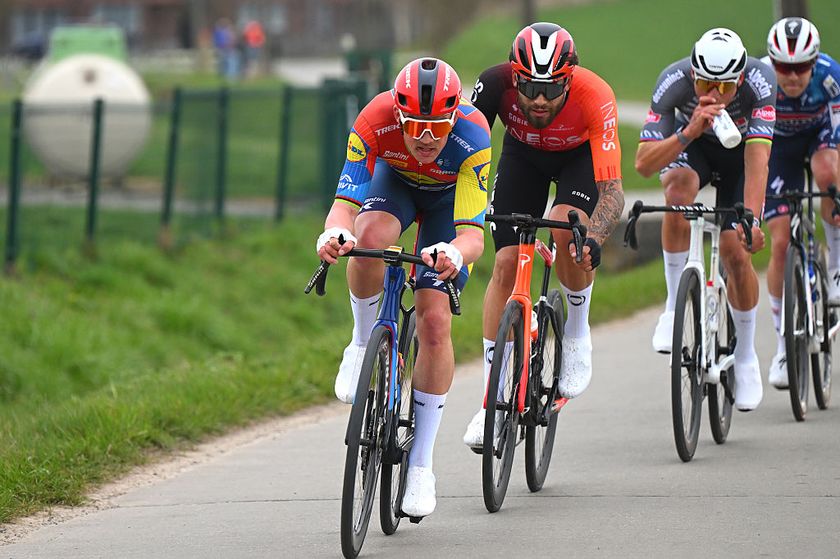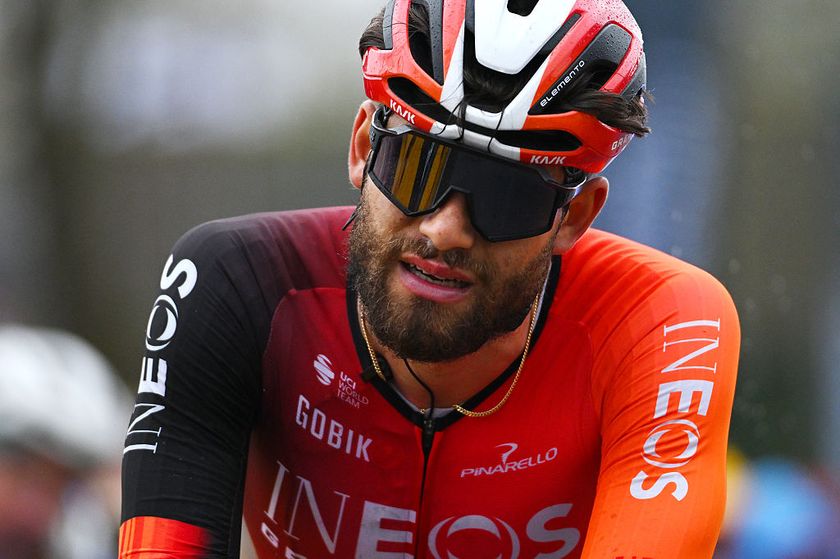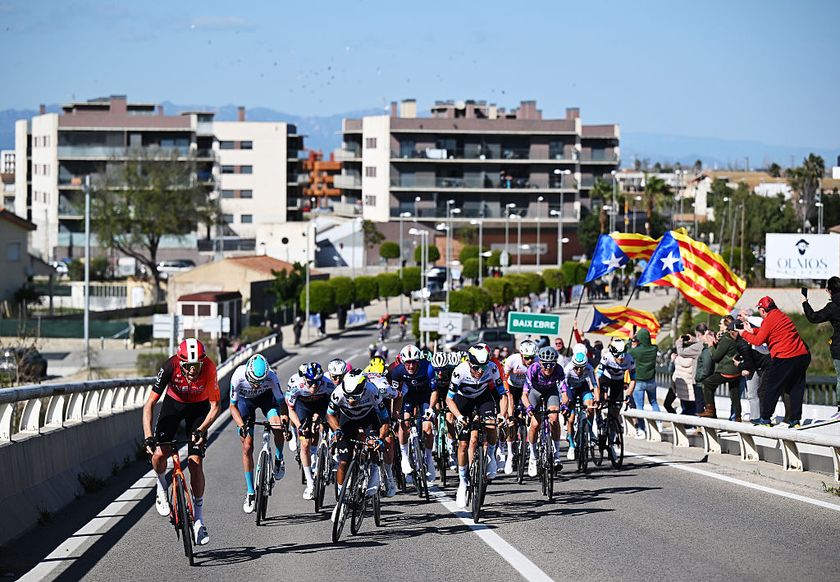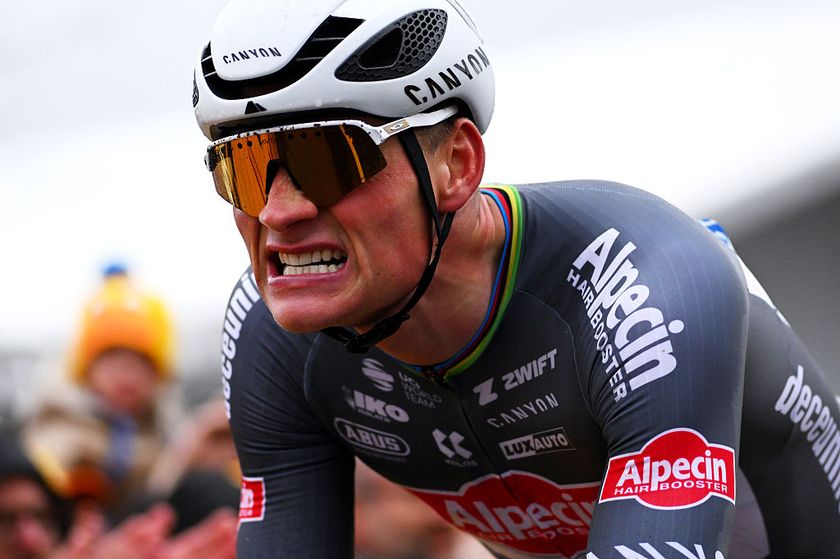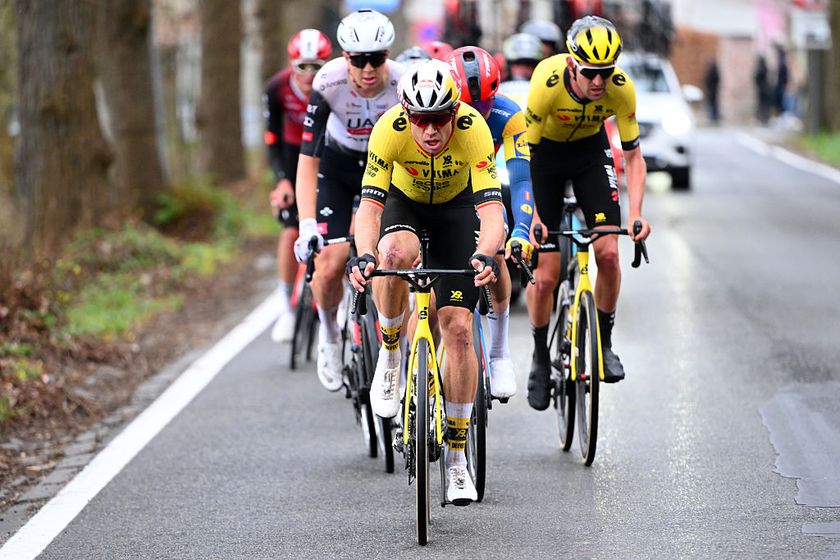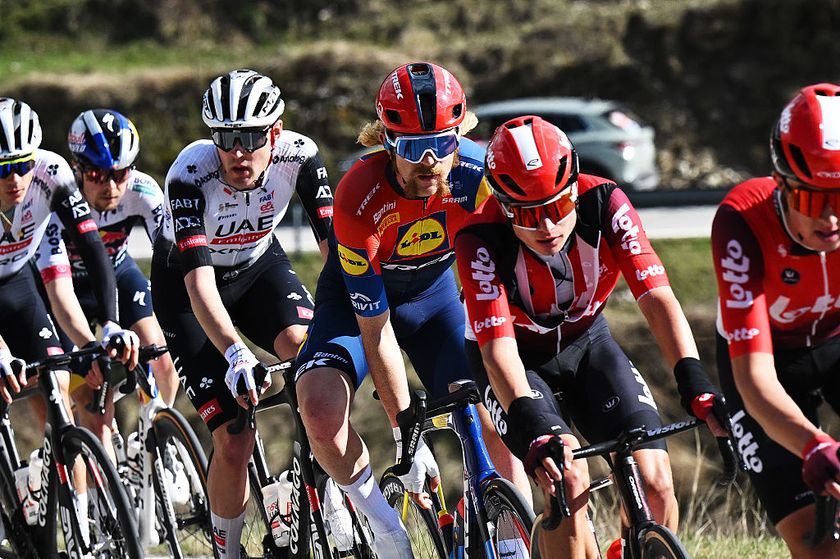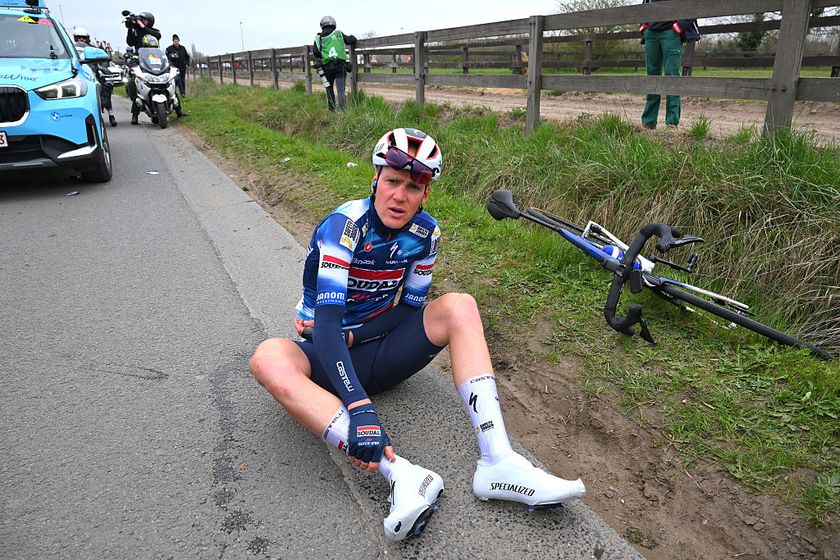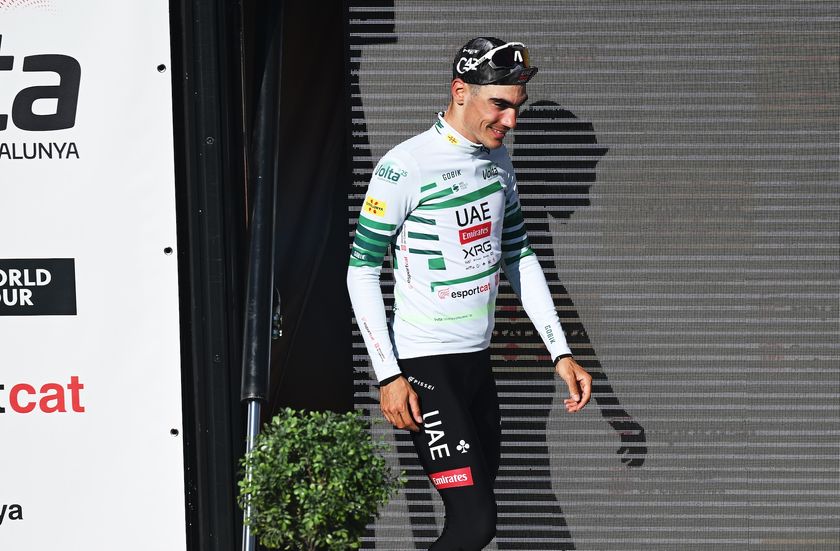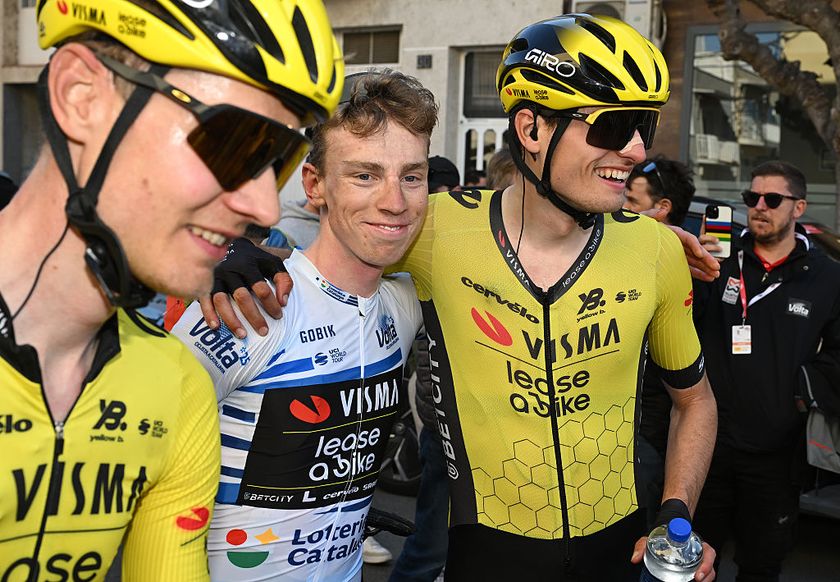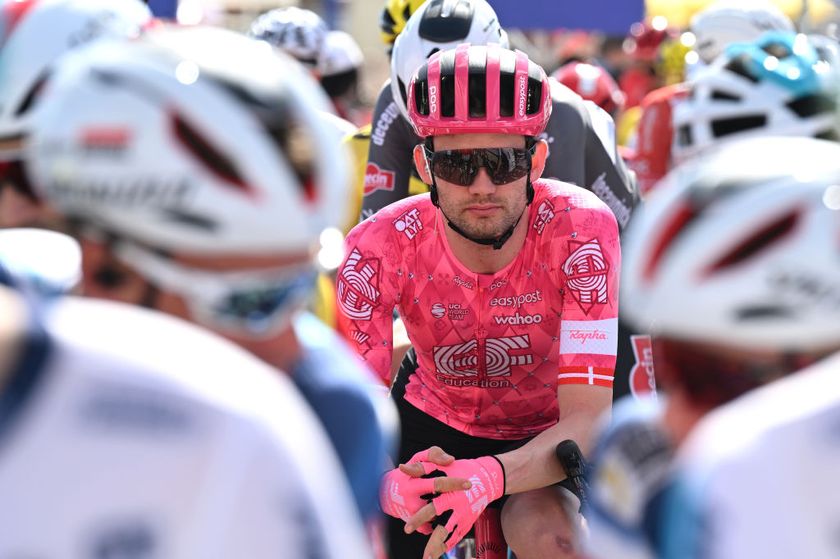Nibali fends off cold to tighten hold on Giro d’Italia
Sicilian extends lead over Evans and Uran




A stiff acceleration in the steep final two kilometres of the Jafferau saw Vincenzo Nibali (Astana) shed Cadel Evans (BMC) and Rigoberto Uran (Sky) on stage 14 of the Giro d’Italia and extend his lead at the head of the general classification to 1:26.
Following on from the abandons of Bradley Wiggins and Ryder Hesjedal on Friday morning, Nibali’s grip on the maglia rosa has tightened to such an extent that – even with a week of racing still to go – the Italian press is already wondering whether the Sicilian’s greatest obstacle might prove to be the weather conditions rather than his immediate rivals.
Snow at Sestrieres meant that stage 14’s penultimate climb was removed from the parcours but the peloton still had to race most of the day in torrential rain and then faced plummeting temperatures on the final haul from Bardonecchia up the Jafferau.
“We were missing the climb of Sestriere but it was still really hard because when it’s that cold, your legs suffer just as much and there were still big gaps in the end,” Nibali said. “If there’s something I’m worried about in the days to come, it’s the weather, because if it stays this cold, it’s just going to get harder and harder.”
In similarly miserable conditions during the interrupted Milan-San Remo in March, a shivering Nibali was forced to abandon the race shortly after the re-start and he admitted that he had kept his Primavera experience in mind on Saturday afternoon.
“The difference at San Remo was that we actually raced in the snow during the first part of the race, which made it more difficult. It was a crazy day,” Nibali said. “Luckily it wasn’t as bad as that today but I was still careful to protect myself on the clothing side of things and wrap up well.”
Nibali’s teeth were visibly chattering when he was interview by RAI television immediately after the finish and in his post-race press conference, one reporter chided him lightly for opting to wear only a short sleeve jersey on the final climb rather than arm warmers and a gilet like many of his rivals.
Get The Leadout Newsletter
The latest race content, interviews, features, reviews and expert buying guides, direct to your inbox!
“I only took off my long-sleeve jersey with 7km to go on the climb,” Nibali said, as if explaining himself to an overbearing parent. “I was dressed lightly on the final climb because I was treating it like a time trial, but in any case, I suffered the cold in my feet rather than in my hands and arms.”
Padrone
Nibali entered the day mindful of the threat posed by Rigoberto Uran, who in Wiggins’ absence, now had the entire Sky team at his disposal. The men in black duly set the tempo on the front at the foot of the climb but Nibali soon realised that he had their measure.
“I understood that the others’ legs weren’t any better than mine. Martino [Astana manager Giuseppe Martinelli] told me the last 2km were toughest so I went for it there,” Nibali said.
Nibali’s was an attack *in progressione* – a long, searing acceleration – that only Santambrogio and Carlos Betancur (Ag2r-La Mondiale) could follow, while Uran and Evans battled to limit their losses behind as the gradient reared up to 10%.
Inside the final kilometre, even Betancur’s resistance wilted under the strength of Nibali’s pressing but in a move straight from the Miguel Indurain diplomacy playbook, he opted not to contest the sprint for stage honours. The reason? Santambrogio’s Vini Fantini-Selle Italia team – and Danilo Di Luca in particular – had proved something of an ally of circumstance by helping to control the race early on and then winding up the pace near the top of the Jafferau.
“You can always find allies along the way in a grand tour and there will be a battle every day because nobody wants to lose his position overall,” said Nibali, who now leads Evans by 1:26 and Uran by 2:46 in the overall standings, while Michele Scarponi (Lampre-Merida) and Robert Gesink (Blanco) both conceded further ground in the closing kilometres.
In spite of his increasingly robust advantage and his ability to deftly mask deficiencies in own illness-hit team by forming on-the-hoof alliances with others, Nibali denied that he was now the padrone of the Giro.
“I don’t think it’s right to say that because there are already riders willing to attack,” he said. “We saw that today in the way Sky imposed their rhythm. They have to be taken into consideration and they can be very dangerous in the coming days.”

Barry Ryan was Head of Features at Cyclingnews. He has covered professional cycling since 2010, reporting from the Tour de France, Giro d’Italia and events from Argentina to Japan. His writing has appeared in The Independent, Procycling and Cycling Plus. He is the author of The Ascent: Sean Kelly, Stephen Roche and the Rise of Irish Cycling’s Golden Generation, published by Gill Books.
